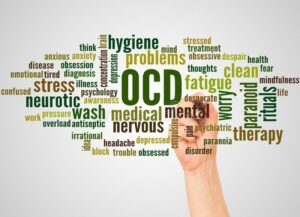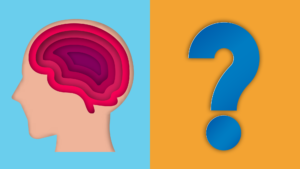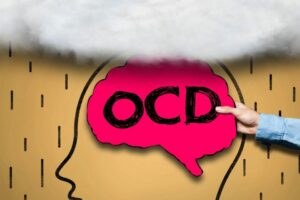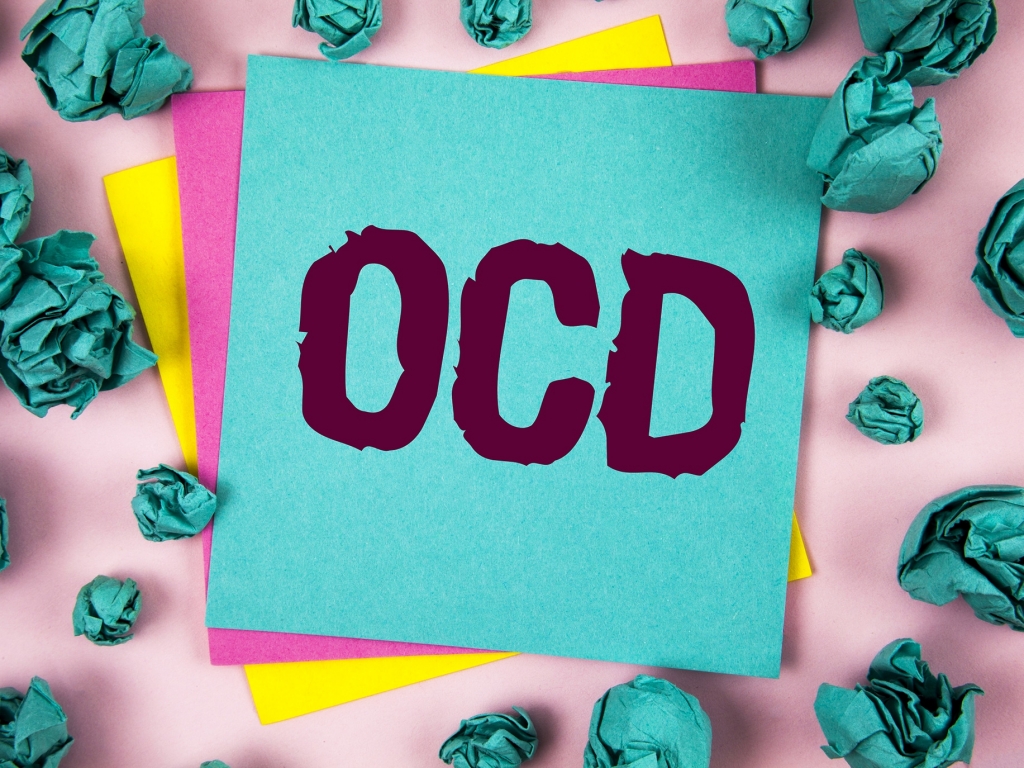It’s not easy living with OCD. The intrusive thoughts and compulsive behaviors can make life very difficult. But what makes it even harder is when the OCD gets worse. This can happen for a variety of reasons, but understanding the triggers and managing them is essential to keeping OCD under control. In this blog post, we will discuss what causes OCD to get worse and how you can manage the triggers to keep your symptoms under control.
Contents
What Is OCD?

Obsessive-compulsive disorder, popular by its acronym OCD, is a mental health disorder that is characterized by intrusive thoughts (obsessions) and repetitive behaviors (compulsions). People with OCD often have difficulty managing their symptoms, which can lead to significant distress and impairment in their daily lives. People have recurrent and obsessive thoughts, images, or impulses that are intrusive and unwanted. In order to try to control the thoughts or relieve the anxiety they cause, people with OCD engage in compulsive behaviors. These compulsions are repetitive actions that the person feels compelled to do in order to ease their anxiety or suppress their thoughts. However, the compulsions only provide temporary relief and often make the OCD worse in the long run.
What Causes OCD To Get Worse?
OCD in itself is a particularly difficult mental health disorder to deal with. However, there are certain things that can trigger OCD symptoms and make them worse. Some of the most common triggers include:
Stress

Stress plays a major role in the worsening of OCD symptoms. When a person is under a lot of stress, it can trigger the obsessions and compulsions that are associated with OCD. In addition, stress can also make it harder to manage OCD symptoms. When one is under a lot of stress, it can be difficult to focus on anything else, which can make it harder to control OCD compulsions. Moreover, stress can also lead to anxiety, which can further exacerbate OCD symptoms.
Illnesses
Certain illnesses can also trigger or worsen OCD symptoms. For example, a person with OCD may start to experience more intrusive thoughts and compulsions during times of illness. This is because the body’s immune system is weakened during times of illness, which can lead to an increase in anxiety and stress. In addition, some illnesses can cause changes in brain chemistry, which can also trigger OCD symptoms.
Changes in Medication
If a person with OCD is taking medication for their condition, any changes in the medication can also trigger or worsen OCD symptoms. For example, if a person with OCD starts taking a new medication, it can cause an increase in anxiety and stress. In addition, if a person with OCD stops taking their medication, it can also trigger OCD symptoms.
Hormonal Changes

Hormonal changes can also play a role in the worsening of OCD symptoms. For example, during puberty or pregnancy, hormonal changes can lead to an increase in anxiety and stress. This can trigger the obsessions and compulsions associated with OCD.
Changes in routine
Any changes in a person’s daily routine can be a trigger for OCD symptoms. This is because changes can lead to anxiety and stress. For example, if a person with OCD starts a new job or moves to a new house, it can trigger their OCD symptoms. This can also be so because changes disrupt the person’s daily routine, which can be a trigger for OCD compulsions.
Comorbidities
Comorbidity means having more than one mental health disorder. OCD often occurs with other mental disorders. Having another mental health disorder can make OCD symptoms worse. This is because other mental disorders can cause anxiety and stress. In addition, comorbidity can also make it harder to manage OCD symptoms. Some of the most common disorders that may occur in comorbidity with OCD include:

- Anxiety disorders
- Impulse control disorders
- Attention deficit hyperactivity disorder (ADHD)
- Mood disorders
- Major depression disorder (MDD)
- Eating disorders
- Tic disorder
- Substance abuse disorders
- Hypochondriasis
Having one or multiple of these may make it difficult to manage OCD.
Repetitive exposure to triggers
Triggers are anything that can make OCD worse. Some people may have certain triggers that worsen their OCD symptoms. For example, some people may be triggered by seeing blood or needles. Others may be triggered by hearing certain sounds. Repeated exposure to these triggers can lead to an increase in anxiety and stress. In addition, it can also make it harder to manage OCD because the person is constantly exposed to their triggers
Age
Lastly, age is one of the factors that can make OCD worse. This is because as a person gets older, they may start to experience more changes in their life. These changes can lead to anxiety and stress. For example, a person may start to experience more change in their job or family life. In addition, as a person gets older, they may also start to experience more health problems. These health problems can also lead to anxiety and stress. All of these factors can make it harder to manage OCD symptoms.
It is important to remember that everyone experiences OCD differently. What may trigger one person’s OCD may not trigger another person’s OCD.
As you can see, there are many different things that can trigger or worsen OCD symptoms. It is important to be aware of the triggers and how to manage them. This will help you keep your OCD under control and minimize the distress caused by your symptoms.
What Are The Side Effects?
OCD by itself has severe and life-long side effects. The obsessions and compulsions of OCD can interfere with every aspect of a person’s life. Some examples include:

- Interference with work or school: OCD can interfere with a person’s ability to work or go to school. This is because the obsessions and compulsions of OCD can take up a lot of time. In addition, OCD can also make it difficult to concentrate on work or school.
- Interference with relationships: The obsessions and compulsions of OCD can also interfere with personal relationships by causing conflict and tension. In addition, OCD can also make it difficult to spend time with friends and family.
- Isolation: The obsessions and compulsions of OCD can also lead to isolation. This is because people with OCD may avoid situations that trigger their symptoms. In addition, people with OCD may also avoid social activities.
- Problems with daily activities: The obsessions and compulsions of OCD can also make it difficult to do everyday activities. This is because people with OCD may need to take extra time to do things such as showering or getting dressed.
- Substance abuse: Some people with OCD may turn to alcohol or drugs to cope with their symptoms. This can lead to addiction and other problems.
As you can see, OCD can have many different side effects. These side effects can be severe and life-long. If you or someone you know has OCD, it is important to get help.
How To Manage Them?
Now that we are aware of what causes OCD to get worse, we will now learn some ways to manage them:

- Identify your triggers: The first step is to identify your triggers. Once you know what triggers your OCD, you can start to avoid them.
- Create a support system: It is important to have a support system in place. This can be friends, family, or a therapist. These people can help you when you are feeling triggered.
- Avoid alcohol and drugs: Some people with OCD may turn to alcohol or drugs to cope with their symptoms. However, this will only make the symptoms worse.
- Talk about your OCD: Talking about your OCD can be helpful. This is because it can help you understand your symptoms and how to manage them. In addition, talking about OCD can also help reduce the stigma associated with the disorder.
- Stick to your treatment plan: Seeing a therapist may be one thing, but it is important to stick to your treatment plan. This means attending all of your therapy sessions and taking your medication as prescribed.
- Maintain a journal: Keeping a journal can be helpful. This is because you can track your symptoms and triggers. In addition, a journal can also help you see how your OCD is affecting your life.
- Maintain a healthy lifestyle: It is important to maintain a healthy lifestyle. This means eating a balanced diet, getting enough sleep, and exercising regularly.
- Have a positive outlook: We understand that it can be difficult to have a positive outlook when you are dealing with OCD. However, it is important to try. This is because having a positive outlook can help you manage your symptoms.
As you can see, there are many different ways to manage OCD symptoms. It is important to find what works for you and stick with it. Remember, you are not alone in this battle. There are many people who are there for you.
Conclusion
In conclusion of the above, we answered a very complex question of ‘what causes ocd to get worse’. It is important to be aware of the triggers and how to manage them. This will help you keep your OCD under control and minimize the distress caused by your symptoms. If you or someone you know has OCD, it is important to get help. There are many resources available that can help you understand and manage your symptoms. Remember, you are not alone in this journey.
If you or someone you know is looking for a reliable and accessible source to get quality mental health care, do consider Therapy Mantra. We have a team of experienced mental health professionals who can help you learn how to manage your OCD symptoms. Our services are available from all across the globe at affordable rates. Contact us today to book a session or download our free OCD treatment app on Android or iOS for more information.


